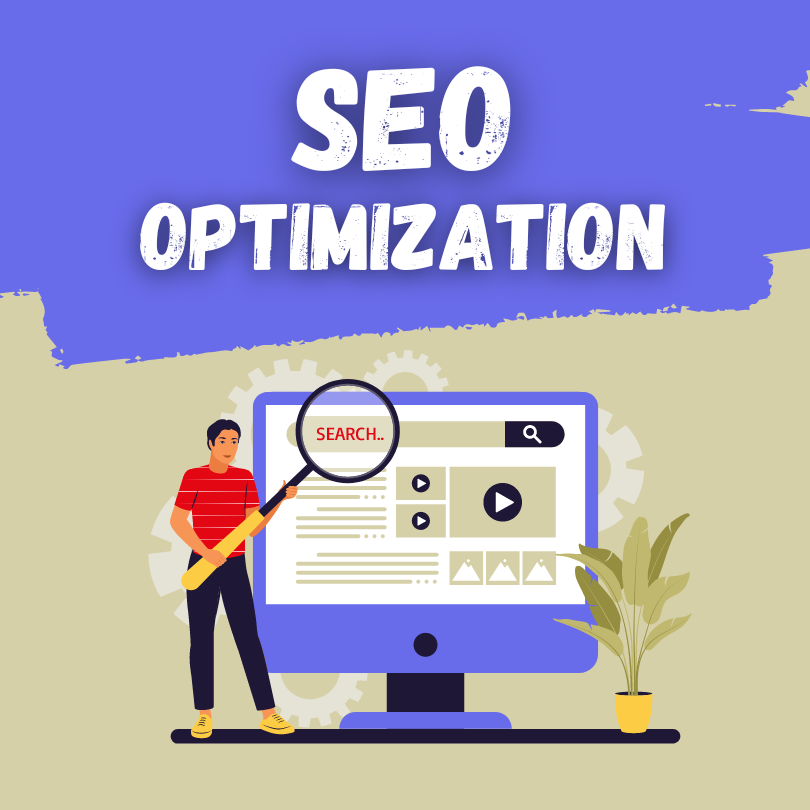Mastering On-Page SEO and Off-Page SEO:
Your Comprehensive Guide for Website Optimization
In the ever-evolving landscape of digital marketing, Search Engine Optimization (SEO) remains a critical factor in driving organic traffic to websites. SEO can be broadly categorized into two main components: On-Page SEO and Off-Page SEO. Both play integral roles in improving a website’s search engine rankings and visibility. In this guide, we’ll delve into the importance of each aspect and provide actionable strategies to optimize your website effectively.
On-Page SEO
Understanding On-Page SEO:
-On-Page SEO refers to the optimization efforts made directly on the website to improve its search engine visibility and relevance.
– It involves optimizing various elements within individual web pages to align with search engine algorithms and user intent.
Importance of On-Page SEO:
– On-Page SEO lays the foundation for a well-optimized website, influencing factors like crawlability, indexing, and user experience.
– Properly optimized on-page elements increase the likelihood of search engines ranking the website higher for relevant keywords.
– It enhances the user experience by providing valuable and relevant content, which in turn reduces bounce rates and improves dwell time.
Key On-Page SEO Elements:
a. Meta Tags: Optimizing meta titles and descriptions with relevant keywords to attract clicks from search engine results pages (SERPs).
b. URL Structure: Creating SEO-friendly URLs that are descriptive, concise, and include target keywords.
c. Headings (H1, H2, etc.): Using hierarchical headings to structure content and signal the importance of key topics to search engines.
d. Content Optimization: Creating high-quality, engaging, and informative content optimized with relevant keywords, proper formatting, and multimedia elements.
e. Internal Linking: Establishing a network of internal links to improve website navigation, distribute link equity, and enhance crawlability.
f. Image Optimization: Optimizing image file names, alt tags, and captions to improve accessibility, user experience, and image search rankings.
g. Page Speed: Ensuring fast loading times by optimizing images, leveraging browser caching, minimizing redirects, and using efficient coding practices.
Off-Page SEO
1. Understanding Off-Page SEO:
– Off-Page SEO focuses on activities conducted outside the website to improve its authority, relevance, and trustworthiness in the eyes of search engines.
– It primarily revolves around building high-quality backlinks from authoritative websites and enhancing online reputation through social signals and mentions.
Importance of Off-Page SEO:
– Off-Page SEO signals, particularly backlinks, serve as crucial ranking factors for search engines, indicating the popularity and credibility of a website.
– Quality backlinks from reputable sources increase domain authority, which positively impacts search engine rankings and organic traffic.
– Social signals, such as likes, shares, and comments on social media platforms, contribute to brand visibility, credibility, and referral traffic.
Key Off-Page SEO Strategies:
a. Link Building: Acquiring high-quality backlinks from relevant and authoritative websites through outreach, guest blogging, content syndication, and directory submissions.
b. Social Media Marketing: Leveraging social media platforms to promote content, engage with audiences, and amplify brand presence, leading to increased website traffic and social signals.
c. Influencer Marketing: Collaborating with influencers and industry experts to endorse content, gain exposure to new audiences, and build credibility within the niche.
d. Online Reputation Management: Monitoring and managing online reviews, mentions, and brand sentiment to maintain a positive brand image and trustworthiness.
e. Content Promotion: Actively promoting content through email marketing, influencer outreach, social media advertising, and online communities to attract backlinks and referral traffic.
Conclusion:
Both On-Page and Off-Page SEO are integral components of a successful digital marketing strategy, working in tandem to enhance a website’s visibility, authority, and relevance in search engine results. By implementing comprehensive optimization techniques and staying abreast of industry trends, website owners can achieve sustainable improvements in search engine rankings, organic traffic, and overall online presence.
